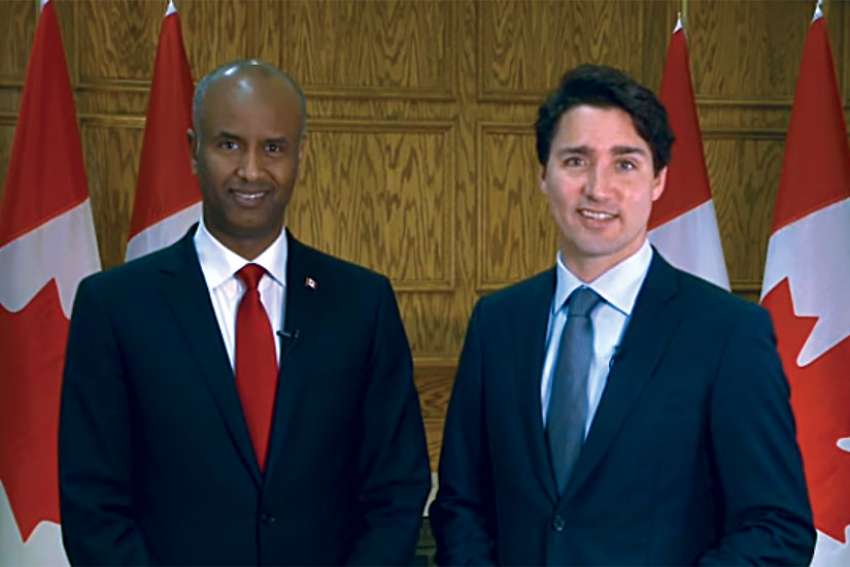“This is certainly in tune with Pope Francis’ messages ever since he became Pope, regarding specifically migrants,” said Anne Leahy, a career Canadian diplomat who is now an adjunct professor at McGill University.
Hussen, 39, was named Minister of Immigration, Refugees and Citizenship in a Jan. 10 cabinet shuffle by Justin Trudeau. The lawyer, human rights activist and former head of the Canadian Somali Congress is a first-time MP elected from the York South-Weston riding in Toronto.
Leahy said Hussen “seems like a very good pick,” a choice that not only sends a message to Somali-Canadians but also to “new Canadians who come here in difficult circumstances that you can succeed.”
Canada’s policy of welcoming refugees goes back to the Vietnamese boat people and includes the welcoming of thousands of Syrian refugees last year, she said. “This policy of integration of refugees has always put Canada in a category of being open.”
Hussen takes over from John McCallum, whose office had come under fire for delays in processing refugee applicants. In an October letter to the minister, the president of the Canadian Conference of Catholic Bishops urged the government to speed up the process in order to preserve confidence in the refugees sponsorship program.
Bishop Douglas Crosby’s letter said many sponsoring groups have become frustrated due to long wait times after they had spent money on housing and household needs to support refugee families which have not arrived due to bureaucratic delays.
“Needless to say, delayed arrivals and the lack of clear and transparent communication about the status of pending cases, poses the risk of undermining the faith of Canadians in the government’s ability to follow through on its promises,” Crosby wrote.
The government is currently screening and processing some 17,000 government and privately sponsored refugees. There are almost 2,000 Middle East refugees whose applications have been approved but have not yet travelled to Canada.
Canada is expected to receive 40,000 refugees in 2017 (down from 55,800 in 2016) as well as 260,000 immigrants.
“I’m extremely proud of the fact that Canadians have always been welcoming to others, people who have sought asylum,” Hussen told journalists. “I think we have always been generous ... by opening our doors and opening our hearts. We’ve been the better for it.”
While Canada does not face the same problems as European countries, with migrants and refugees pouring in from Syria, North Africa and other parts of the Middle East, the choice of Hussen is in line with the openness of German Chancellor Angela Merkel and in contrast to positions expressed by new American president Donald Trump.
“Angela Merkel is courageous leader who did the right thing at the time,” Leahy said.
The idea of “welcoming people and helping them to integrate so they will contribute to the growth of the economy and of society — that is also part of the argument in Canada,” she said, noting positive stories emerging of recent Syrian refugees who have started their own businesses and hired people.
“The upside is far more important than the negativity that gets reported,” she said.
Other observers warn Canada’s openness on immigration could have a downside with the Trump administration.
“We already have the reputation as an Angela Merkel-lite country,” said former CSIS senior manager and director of Insignis Strategic Research David Harris.
Trudeau raised the number to more than 300,000 immigrants last year, “to say nothing of hundreds of thousands of temporary visa holders per year,” he said. “If you add to that to the massive Syrian migrant intake, anyone in the United States responsible for continental security might be given pause.”


